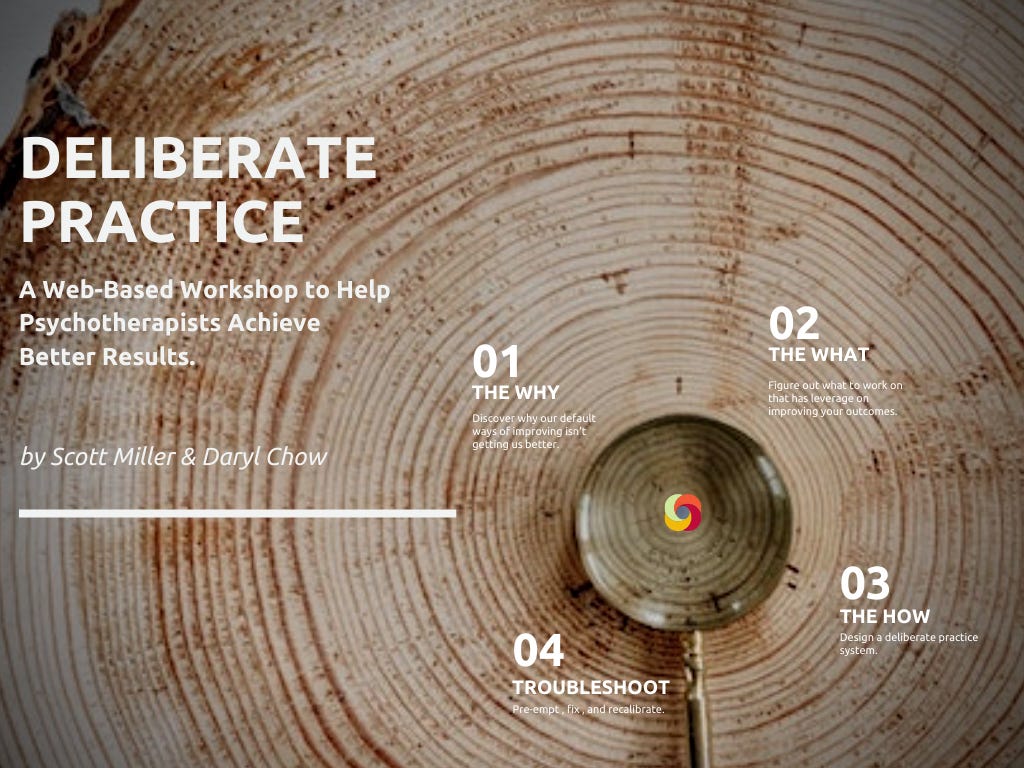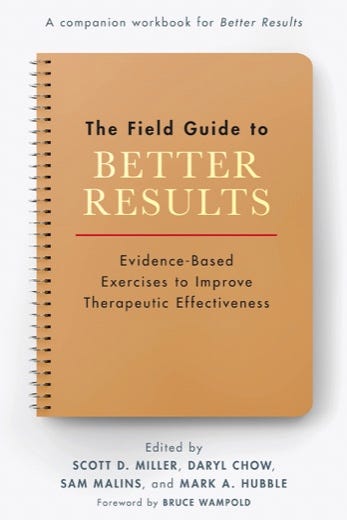Frontiers Friday #134. The Debate on Common Factors (Part II) ⭕️
Hold contradictions. Learning from both sides of the debate on specific and common factors.
In Part II on common therapeutic factors, I invite you to hold two contradictory viewpoints: One for the common factors, and the other for specific factors in what contributes to outcomes in psychotherapy.
And to keep things less taxing and more focused, only one recommendation for today, and our usual Words Worth Contemplating.
Check out Part I on this topic if you missed it last week.
Watch: The Psychotherapy Debate with Peter Fonagy and Bruce Wampold
This is a must-watch.
Peter Fonagy, known for his contributions in mentalisation-based treatment, and Bruce Wampold, the leading researching in the contextual model, debates on perennial questions in psychotherapy i.e., “Are some psychological treatments more effective than others?” “How do we become better therapists?” “What is the future of psychotherapy research?”Key Grafs:
On Ethics:
- 4:13min: [Peter Fonagy] It is our responsibility to our patients what works and for whom the answer to that is an absolute and unequivocal yes. I would consider any attempt to hinder that process to be both unethical and unacceptable intellectually.
- 8:26min: [Bruce Wampold] … How is it we keep developing new therapies and the outcomes we get with patients really have not improved over time? This is disturbing to me.
On What Makes a Difference in Outcome
- [BW cont.] …what really makes a difference is the therapists. There are some really good cognitive behavioral therapists who do a great job and when I say a great job I'm not talking abou tthey look good if you observe them. I mean, they actually achieve good outcomes with their patients.
But there's some very poor cognitive behavior therapists and with dynamic therapist, emotion-focused therapists… The key to success and you got to the epistemic trust is that some therapists have the skills to be able to help patients regardless of the treatment.
- 9:47min: [BW] The continued focus on treatment really puts the spotlight in the wrong place. regardless of the treatment. the continued focus on treatment really puts the spotlight in the wrong place. okay. It’s us—therapists who make therapy work.
On What Doesn’t Work
- 10:45mins: [BW] What doesn’t work is just sitting with the patient and beingempathic understanding okay. Treatments without structure without some way for the patient to workhard to overcome their difficulties don't work as well as focus treatments and CBT has really taught this.
- In the eating disorder area the trial that Stig Polson and colleagues did where they compared CBT to psychoanalytic therapy didn't do as well because the patients were allowed to come in and talk about anything they wanted. It was their choice whether they talked about an eating disorder… and the difficulty is difficult so they avoided it and so did the therapist so they never worked on what the focal problem.
- 12:32mins: [PF] I think that what happens in therapy across the 1246 different kinds of psychotherapy is that there are is that if you have a decent and scientifically or empirically based a model of the client and you are actually able to say something to the client that they find helpful.
- 16:30mins: [BW] I would contend that every understanding of a disorder is wrong.We will find out in 10 or 15 or 20 years every explanation you have will be supplanted by a new one..1. Not necessarily going to be a true one.
What's really important... Is that the patient accepts the explanation, ok, whether it's evidenced-based or not.
On Clinical Supervision
- 27mins: [PF]: I'm making something it is deadly serious here, that is, unless and until we put supervision that's based on actual clinical material rather than one's fantasy about what occurred …unless you actually do it on what had happened it's probably not very useful.2
Well worth your time to listen to this two leading figures in our field.⏸ Words Worth Contemplating:
I've looked at love from both sides now
From give and take and still somehow
It's love's illusions that I recall
I really don't know love
Really don't know love at all.
~ Joni Mitchell, Both Sides Now, 1969.
Reflection
Just listen. Suspend analysis. Just listen.
Question:
What was your highlight from the discussion between Peter Fonagy and Bruce Wampold? Let us know in the comments below.
Announcements
A new podcast interview on the state of professional development is coming out. Big thanks to Osame Salim from Sweden for asking deep questions and giving me a chance to talk about them.
Meanwhile, listen to the interview they conducted with Steve Hayes. (Spoiler: Has anxiety treatment improved in the last 40 years? … I think you know where this is going).The Deliberate Practice Web-Based Workshop is Back for the 6th Cohort!
It’s been almost a year since our last cohort… Scott Miller and I are now all set for our 6th cohort of the Deliberate Practice Web-Based Workshop, which kicks off on 22nd of May 2023.
You'd be sent practical content every Mondays and Fridays. during the 10-week period of the course.
Scott and I, and the rest of the community will be there walking through this deep learning journey.You can go at your own pace. Plus—this is a BIG PLUS—you'd have a LIFETIME ACCESS to the course. Yep, no monthly subscription fee.
Registration is now open to a limit of 40 participants. (Why limit? Well, it's hard to manage a bigger group and we would lose an intimate connection if it was any bigger a group.)
Start Date: 22nd of May 2023, 10-week program (cohort and self-paced) Registration Ends: 19th of May 2023.
USE THE FOLLOWING PROMO CODE AT THE CHECKOUT FOR AN EXCLUSIVE INSIDERS 20% OFF: DPVIP
(Click darylchowcourses.teachable.com/p/dpforb… to preview the course. We've made some modules free to preview).
Daryl Chow Ph.D. is the author of The First Kiss, co-author of Better Results, and The Write to Recovery, Creating Impact, and the forthcoming book The Field Guide to Better Results .
The Field Guide to Better Results is coming out soon on 23rd of May’23!
Related to this point made by Bruce Wampold, I recommend Samual Arbesman’s book The Half Life of Facts, or this weirdly titled phenomena called the Pessimistic meta-induction theory
This is a pivotal point we make in the Reigniting Clinical Supervision (RCS) training program. For more on this see the 7 Mistakes We Make in Clinical Supervision.




Thanks for the video link Daryl. I also valued the quote you picked out at 27:00 on how supervision needs to be improved. The other stand-outs for me were:
31:03 (PF) the most important part (of what works in therapy) involves the participation of the client in the choice of their treatment, in what it is they want to have & also designing the goals for their treatment, setting goals for the treatment, goals that can be monitored throughout treatment (to see) whether they are attaining those goals.
32:00 (PF)...you also have to train the supervisors so they can supervise in the way that I think Bruce and I agree on, with videos and giving feedback in the way that I think we both agree is essential. But that's not enough either, you’ve got to train the managers, the people who organize the service in how the services should be delivered.
32:52 (PF) if you're trying to bring things to scale…the one-word answer in this is…you use another science that we don't normally talk about…implementation science, the science of how you can bring things to scale and you use that research evidence to guide what you do
P.S - I love Joni's "Both Sides Now".
Two gems in the Fonagy/Wampold recording---'Its us--therapists who make the therapy work." + what doesn't work is treatments without structure.
Being empathic is not enough, evidence based treatments are not the answer and what works for whom is the art and science of being a therapist and using outcome measures and feedback conversations is the way to honour the client voice with a model of care that works.
Thanks Daryl for this recording that reminds us of many significant aspects of our work.